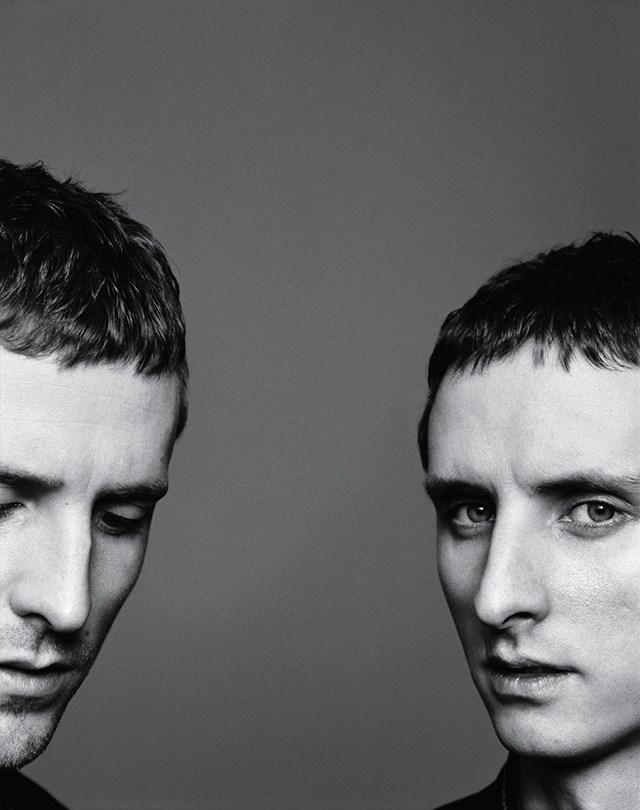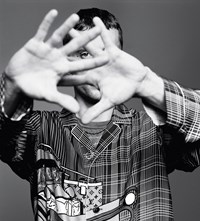The Musical Twins Blazing Their Own Path
- TextPaul Moody
- PhotographyAlasdair McLellan
- StylingAlister Mackie
With a fourth album nearing completion, the Barnett twins – also known as These New Puritans – are as uncompromising as ever
Taken from the S/S17 issue of Another Man.
These New Puritans would like to get a few things off their chest. First, despite being perennially pegged as part of pop’s privately-educated elite, they are in fact proud sons of Essex whose family tree boasts more colourful characters than an episode of Who Do You Think You Are? Secondly, despite internet rumours to the contrary, their debut album Beat Pyramid was not inspired by a Belgian techno outfit in thrall to the mysterious Father Abraham.
“Our Wikipedia page says that the biggest influence on our first record was The Smurfs,” Jack Barnett sighs, nursing nothing stronger than a glass of water in an East End bar. “Because of that, 75 per cent of all the interviews we do mention it. I did have that album, and it is good, but y’know… ”
Barnett’s exasperation at the limitations imposed on his imaginative scope are understandable. Over the last decade, his band – now reduced to a core of Jack and twin brother George – have blazed, like Halley’s Comet, across the skies of the British music scene.
Brilliant and bonkers in equal measure, their three studio albums – 2008’s Beat Pyramid, 2010’s Hidden and 2013’s Field of Reeds – have established These New Puritans as genuine eccentrics whose next move cannot be predicted (Barnett told interviewers at the time of Field of Reeds that the follow up would be “Disney Pop”, sung by an East European vocalist. While this is unlikely, you still wouldn’t bet against it.)
Incorporating seemingly random elements ranging from children’s choirs to factory noise; Jamaican dance hall to the deepest voice in Britain; a harrier hawk taking flight to the sound of a human skull being smashed (achieved by striking a hammer against a melon covered in cream crackers), their ever-changing collision of art rock, electronica, classical and sound collage has seen them move at breath-taking speed. It’s little wonder that some less enlightened observers have been left simply gazing in awe.
Signed to Infectious (and Domino outside the UK), they have built a loyal global fan base with an influence far beyond the quick-fix of chart success. In 2007 fashion designer Hedi Slimane commissioned the 15-minute piece Navigate, Navigate for a Dior show in Paris, while celebrity admirers include Suede, who asked them to support at the Royal Albert Hall in 2010, and Elton John, who praised the lush arrangements of Field of Reeds. In April 2014 they inverted the hoary notion of the ‘live album’ by performing songs from their entire back catalogue at the Barbican with the aid of a 35-piece orchestra (captured on the 2015 album Expanded).
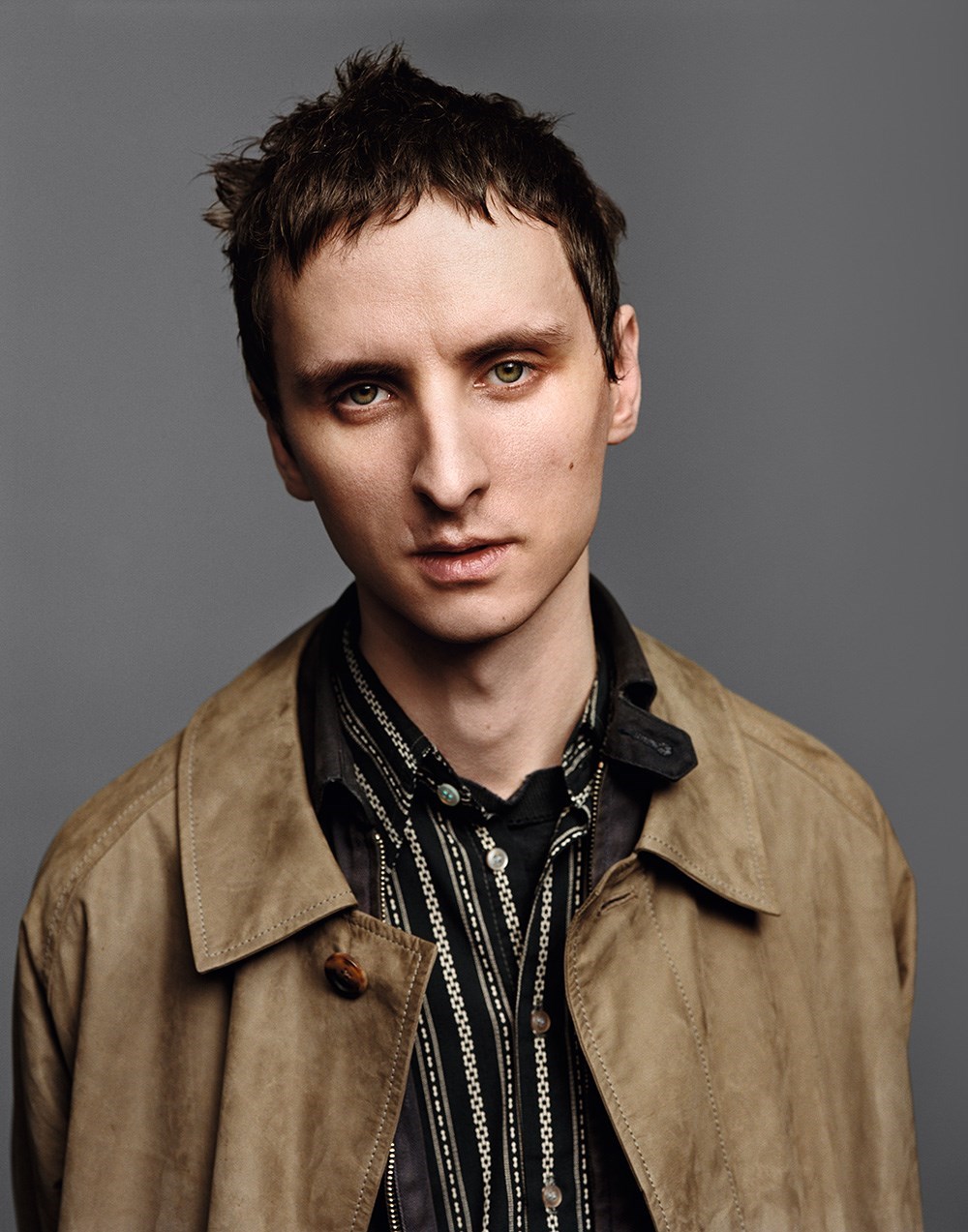
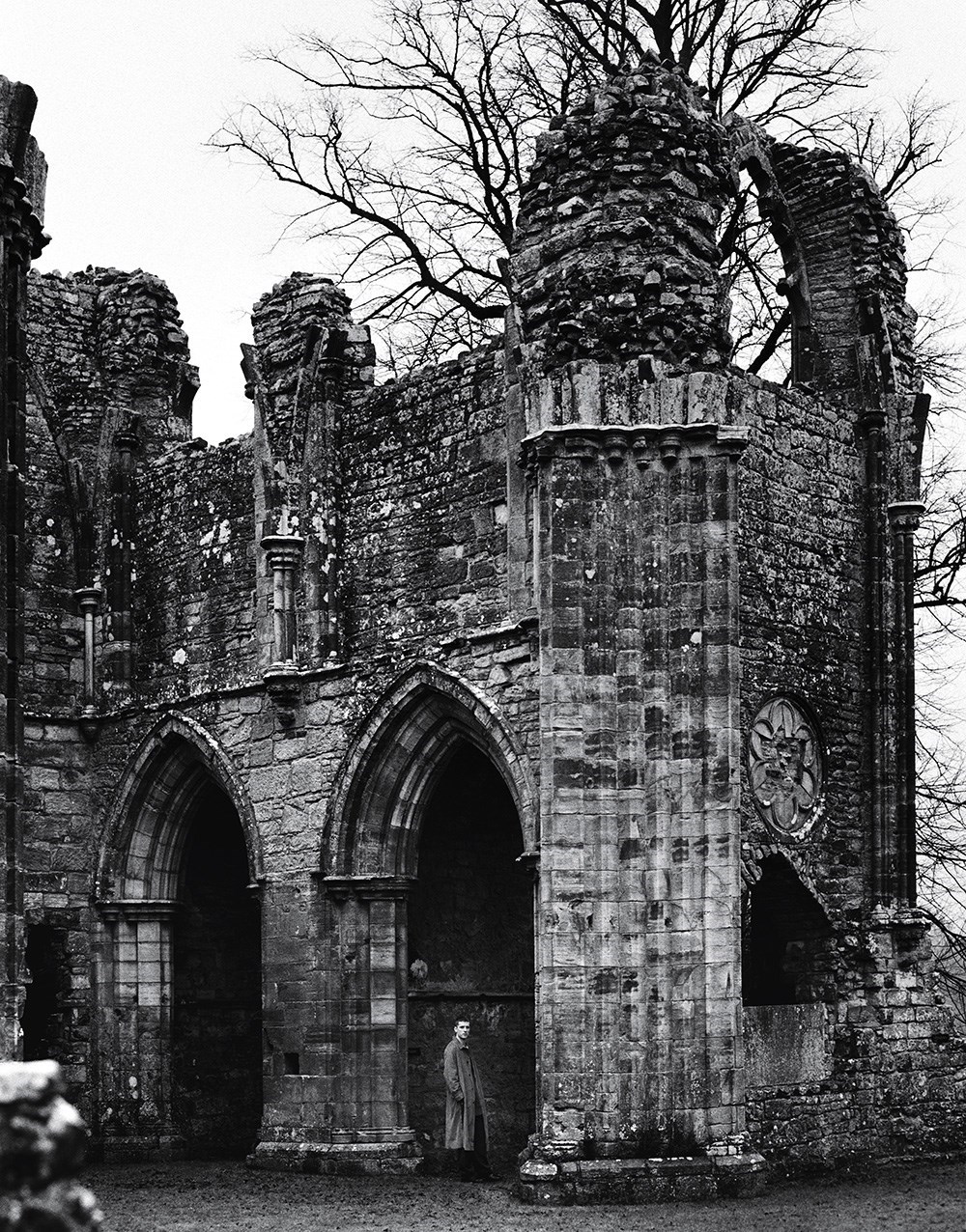
“I always liked the idea of there being two paths,” says Jack, looking back over their career to date. “There’s one where you can be successful, and the other where you can be experimental. The art is combining the two. The irony is that, in my head, I always think we’re making pop music. It’s only when I look at the reality of pop that I see it’s really banal.”
For These New Puritans, home is where the art is. Brought up by their mum (an art teacher) and dad (a builder) in Leigh-on-Sea in Essex, their maverick approach mirrors that of the town itself – local alumni include musician Vivian Stanshall, Helen Mirren and novelist John Fowles.
“The irony is that, in my head, I always think we’re making pop music. It’s only when I look at the reality of pop that I see it’s really banal” – Jack Barnett
Growing up, music was never far away. “Our mum was good friends with Wilko Johnson and (Dr Feelgood vocalist) Lee Brilleaux, so we would knock about with his kids,” Jack explains. “And our dad was a huge reggae fan,” George adds dryly. “He was into Steel Pulse, smoking weed, and being the only white guy there.” Their musical awakening came seeing Sparks and Captain Beefheart on re-runs of The Old Grey Whistle Test. By eight, the twins were already writing songs, with their roles clearly defined – Jack on guitar and George on drums. “I used to listen to The Velvet Underground when I was ten,” Jack says of their advanced progress. “But I never once thought about the words or what they meant. They weren’t important to me – it was all about the sound.”
As teenagers the pair would hole up in the loft, slowing down Aphex Twin tracks to quarter speed to fi gure out how they were created. However, drawn towards the thriving post-punk scene centred around Southend’s Junk Club, they were soon playing gigs of their own, confusing audiences around the country with their ever-evolving sound. “Our music was changing so quickly,” Jack says with a grin. “A promoter would book us three months in advance to play at some indie club. By the time we turned up we wouldn’t be playing any of the songs they wanted to hear. Instead it would be the noisiest music you can imagine – like Einstürzende Neubauten.”
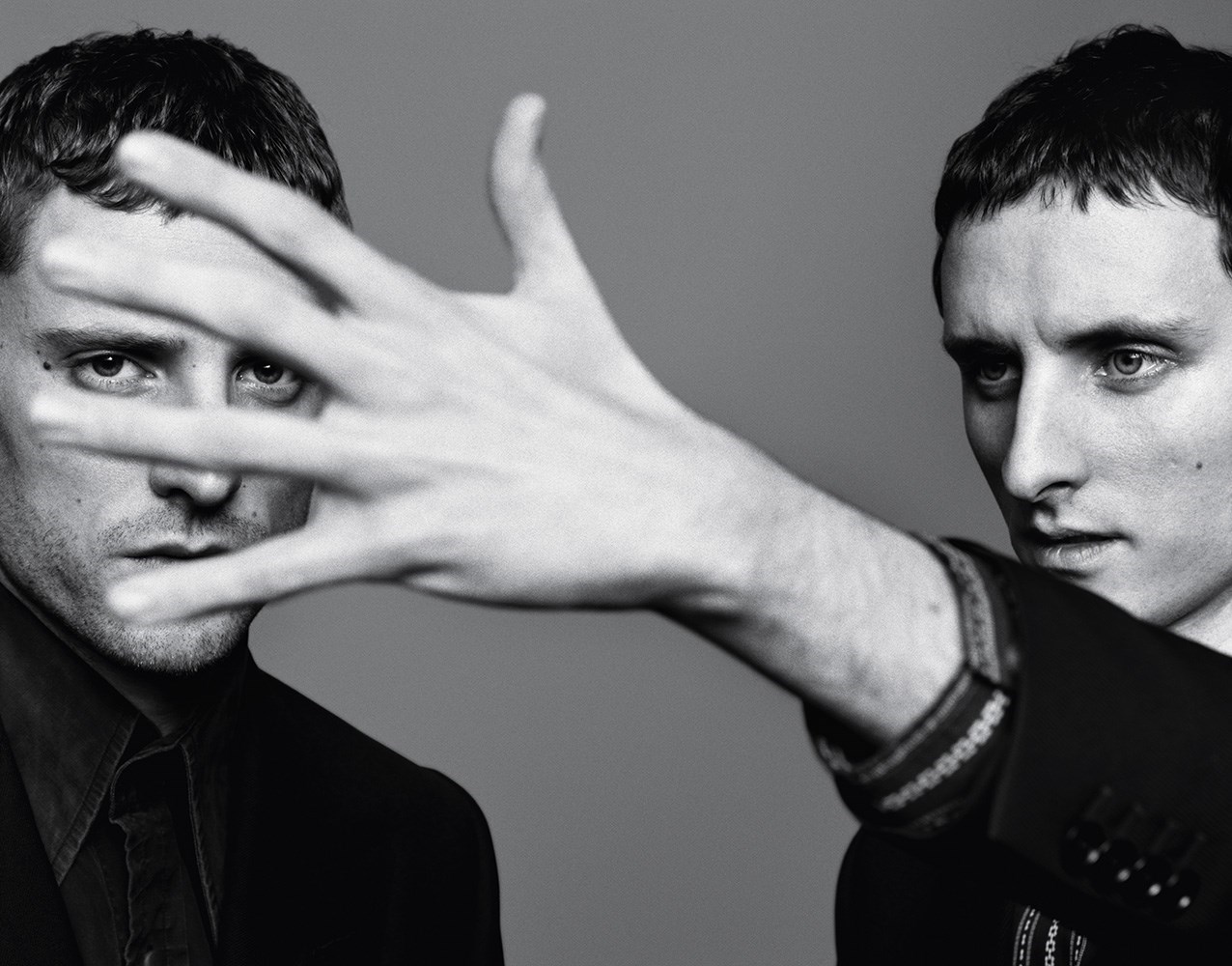
“People have this idea we’re from an indie background because we used guitars on (debut album) Beat Pyramid,” George adds. “If anything, that’s the exception. We’ve always been into electronic music.”
Barnett’s own reputation as a composer has also grown exponentially. In 2015, he was musical director of a stage production of Aldous Huxley’s 1932 dystopian novel Brave New World. Set in the modern day, this involved writing short pieces to mirror – among other things – the sound of someone perusing their Facebook wall. “Jack’s music always has extraordinary range: there is so much in the way of colour, texture and variety to it,” says James Dacre, the show’s artistic director. “As a composer he combines an innate and passionate understanding of storytelling with an astonishing musical range and technical rigour.”
“People have this idea we’re from an indie background because we used guitars on (debut album) Beat Pyramid. If anything, that’s the exception. We’ve always been into electronic music” – George Barnett
For Barnett, it was exactly the kind of challenge he thrives on: both cerebral and sonically challenging. To create the effect of soma – the euphoric narcotic on which Huxley’s population is hooked – he used an obscure digital technique called Harmor resynthesis; for the slogans used by the World State, a barrage of hyper-oscillating noise. “At that time a lot of people were writing about dystopias, but they imagined violence and repression being the thing that oppressed people rather than banal pleasures,” he says, still fascinated by the subject. “It’s exactly those psychological weaknesses that oppress people now. We’re constantly presented with mediocre luxury – like being in business class on a plane rather than economy. In real terms, there’s no difference – an Amazonian tribesman wouldn’t be able to tell them apart. It makes you think, is that really all people aspire to?”
If These New Puritans are unlike any other band, they are also completely unlike each other. Pale and intense, Jack chooses his words with the care of a Scrabble grandmaster. Resident in Berlin since 2014, he’s a committed Europhile, citing 19th-century Russian novelist Nikolai Gogol and Lithuanian filmmaker Šarunas Bartas as current inspirations. George – the older twin by a minute – is positively cavalier in comparison. A highly successful model who has fronted campaigns for Burberry, Valentino and Lanvin among others, you sense that, as well as playing drums and contributing lyrics, he acts as a vital sounding board for his brother’s more extravagant flights of fancy.
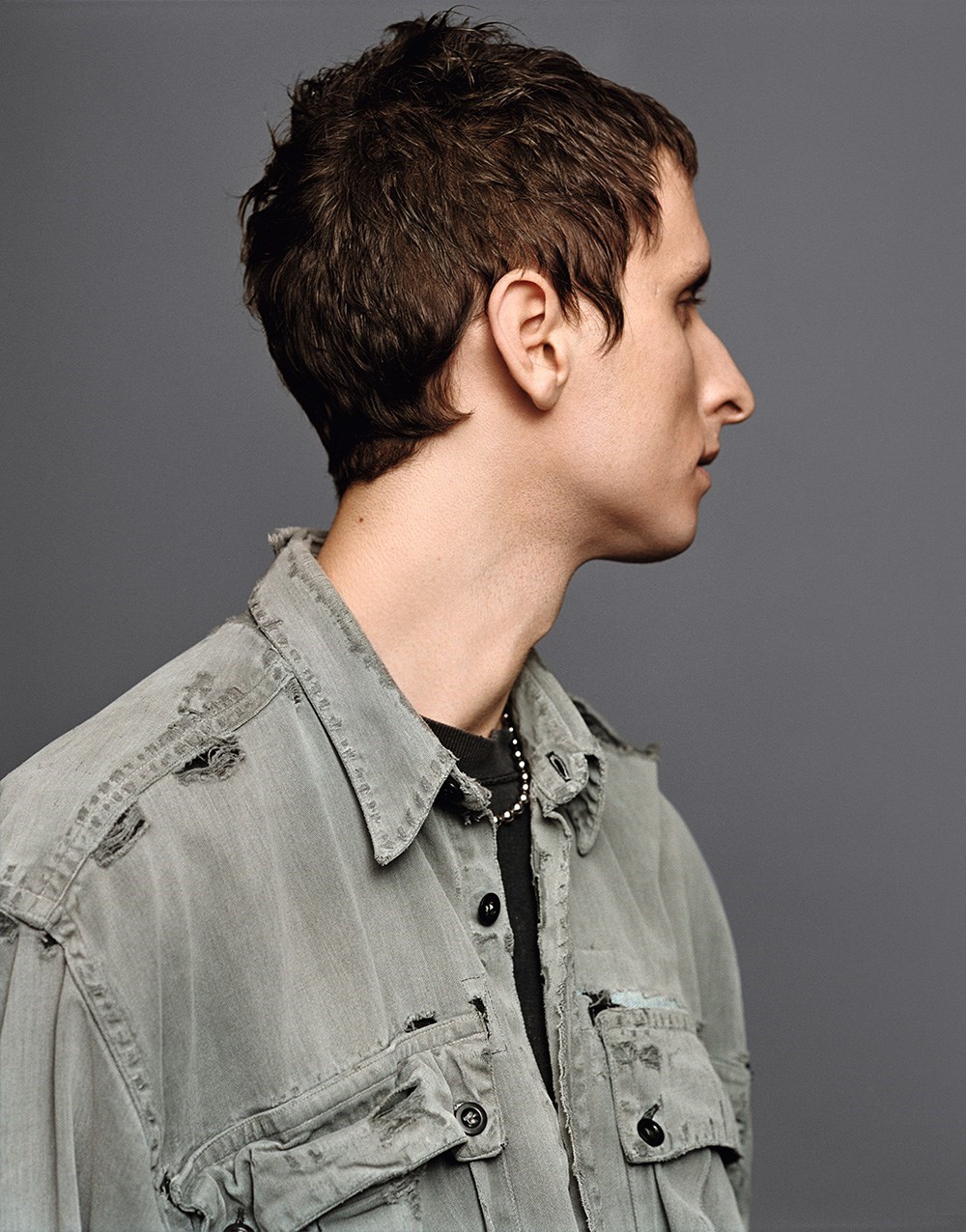
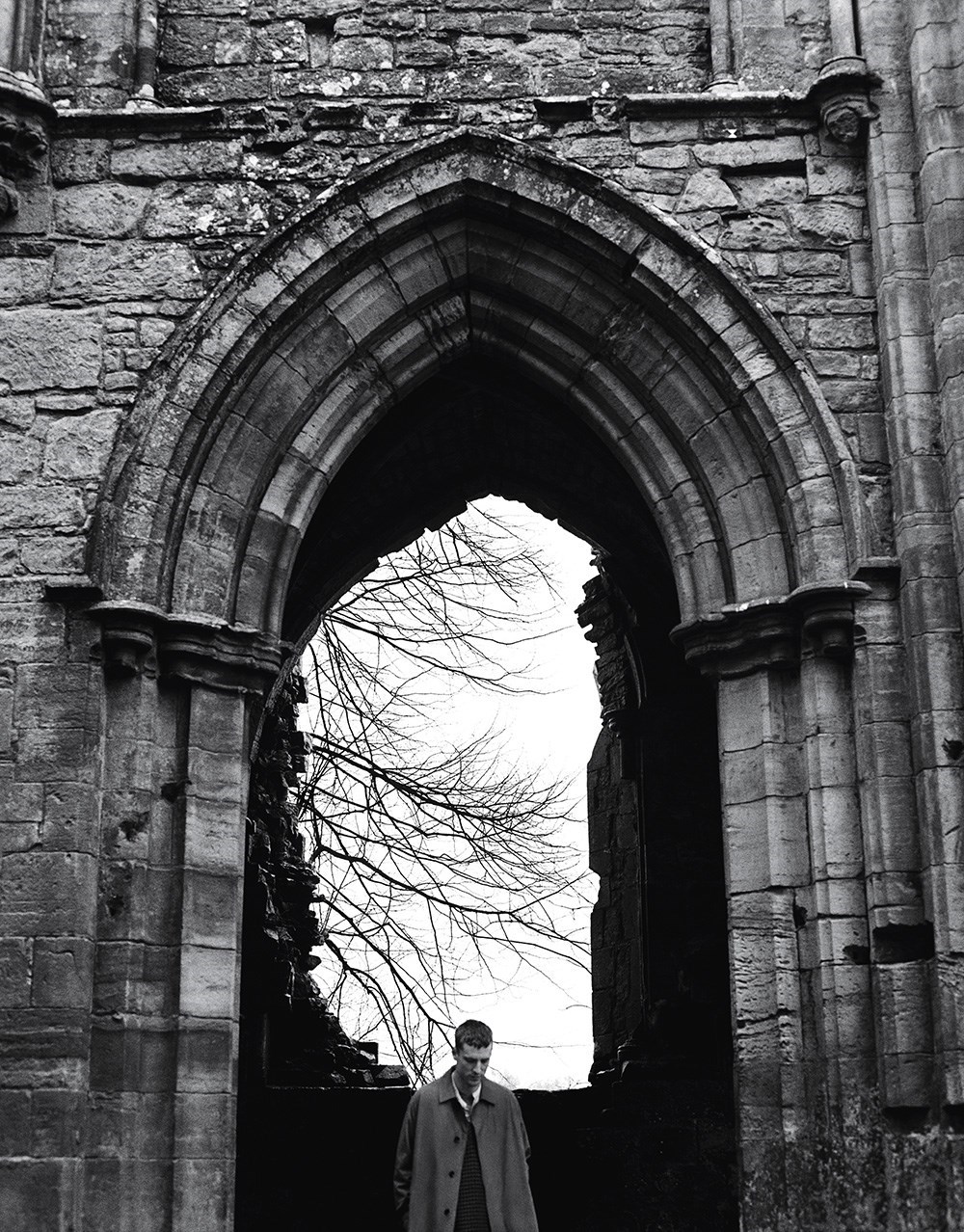
“We just pursue the music,” he says, explaining that his regular EasyJet trips to Berlin from his London home are as much about mapping TNP’s direction as their sound. “We have similar beliefs about things. It’s been like that since we were kids.”
The band’s eureka moment came with 2010’s Hidden. A complete musical volte-face, it combined a glacial sonic assault with word-salad couplets such as Three Thousand’s “Wear fun death-suit / Tropical design / Blade grammar, to the death / Everybody run.” Voted NME’s Album of the Year, it cast them as sonic adventurers in the mould of Sigur Rós and Radiohead, a reputation bolstered by 2013’s stunning Field of Reeds. A combination of lush symphonics and woozy electronica, it nodded to everyone from (fellow Essex natives) Talk Talk to conductors André de Ridder and Hans Ek, positioning them firmly as a neoclassical outfit.
“The new album sounds like us. I can’t think of any other way of describing it” – Jack Barnett
So where will these shape-shifting pop chameleons go next? After two years in Jack’s Berlin studio, their new album is, he says, “75 per cent finished”. While they admit to absorbing ideas from everyone from Stockhausen to electronic label Tri Angle Records – notably Rabit – they’re deliberately vague on details. One thing is for certain, however: it won’t be their ‘Berlin album’. “I hate that idea,” Jack says, recoiling at the thought. “The new album sounds like us. I can’t think of any other way of describing it.”
“I can, however, say that the drumming is brilliant,” George adds. He explains that the music they’re working on is both “brutal and beautiful”, with a central theme of “transcendence”. “We’ve got this phrase: don’t dream backwards, dream forwards,” he says. “I think that sums up the way we’re thinking. Look to the future, not the past.”
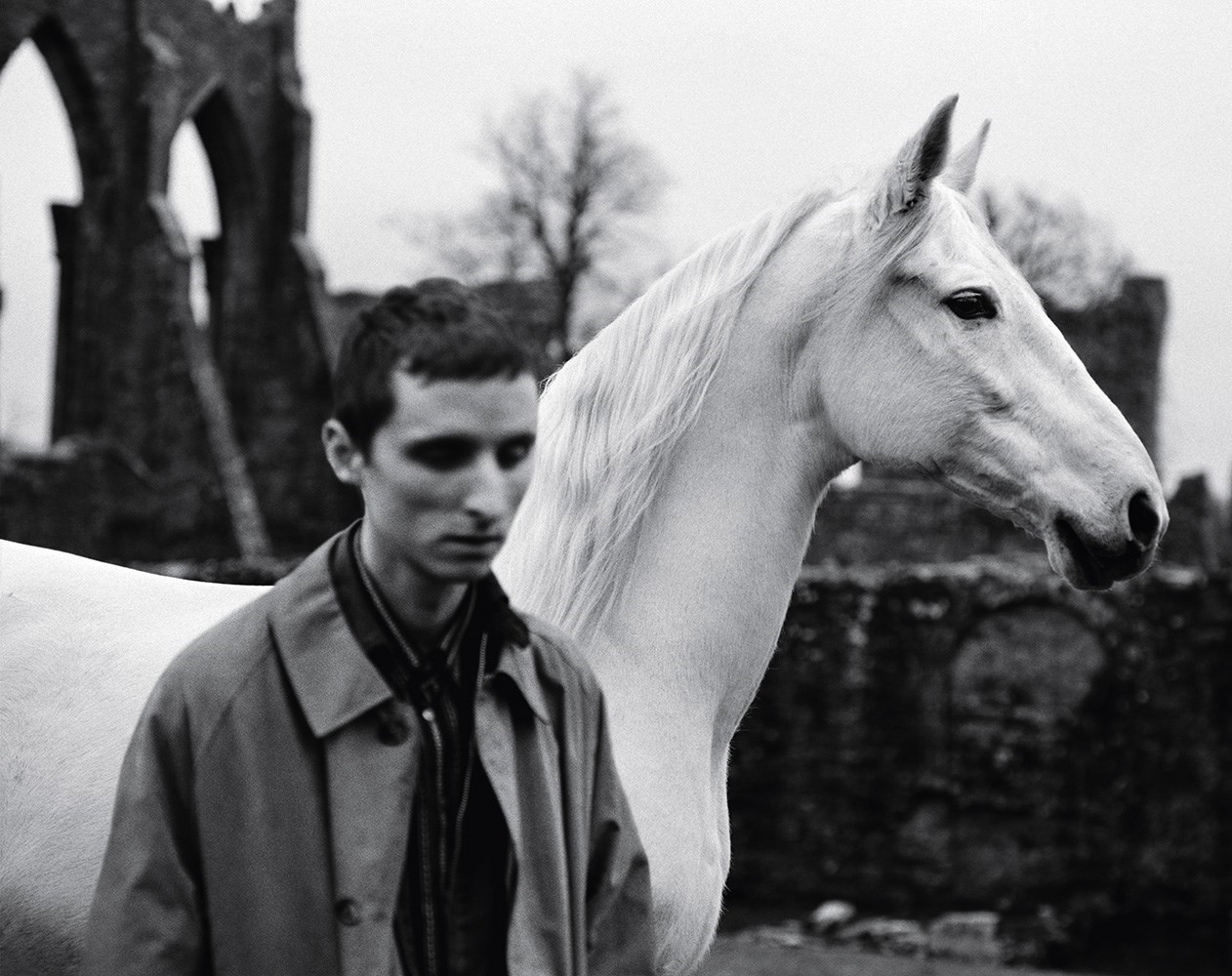
They both stress that this aim is only achievable without the digital trickery of compression, reverb, and distortion. “In the 60s and 70s they were trying to get as hi-fidelity as they could,” says Jack with an air of exasperation. “Why hang on to something that is preexisting? It’s much more interesting to go forwards and make something clear and pristine.”
This seems as good a place as any to leave them. In a world increasingly dominated by brazen self-promotion, These New Puritans’ refusal to talk themselves up is a breath of fresh air. At 27, you get the sense that the remarkable Barnett brothers are only getting started on their journeys through sound.
“I have always seen the role of the artist as transporting the listener away from grim reality,” says Jack in conclusion. “There are ways out of the banality. That’s music to me. We don’t want to change to have success. If anything, I like the idea of the world changing around us.”
Hair Anthony Turner at Art Partner; Make-up Lynsey Alexander at Streeters for Estee Lauder cosmetics; Photographic assistants Lex Kembery, Matthew Healy, Simon Mackinlay; Styling assistants Reuben Esser, Rhys Davies, Steph Francis; Hair assistant Claire Grech; Make-up assistant Camila Fernandez; Production Ragi Dholakia Productions; Special thanks Tony Smart Horse Trainer, Bayham Old Abbey and The English Heritage Trust.
